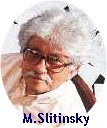
Dernière mise à jour : le 01/11/2002
New York Times
un article de BRUNO GIUSSANI (copyright NYTimes) :
CYBERTIMES/EuroBytes
21 / 10 / 1997
Using the Web to Confront France's Vichy Past
One of the most popular features on the Papon Trial Web site created by the French regional daily newspaper Sud-Ouest is an interactive map of the southwestern city of Bordeaux, where the former Vichy police official Maurice Papon is standing trial on charges of crimes against humanity during World War II.
Clicking on the cathedral calls up pictures and a biography of Msgr. Maurice Feltin, then the archbishop, who collaborated with the Nazis. A bibliography of Vichy-related works pops onto the screen when the City Library is selected. Other options include the Gestapo headquarters and the open field where the Nazis gunned down prisoners.
"It's a map of the city under the occupation," the period covering the Germans first defeat of France in 1940 until the liberation in 1944, Hubert Barat, the site's editor, explained in an interview on Friday.
"It is intended to allow the Bordelais [the city's inhabitants], and especially the younger generation, to get a glimpse of the tragic events that took place more than 50 years ago on the same premises where they live today," Barat added.
The Papon trial, which began on October 8 and will probably last until mid-December, has come to symbolize France's difficult confrontation with the shadow of its past.
During the Nazi occupation, Maurice Papon, now 87, was secretary general of the Gironde territorial department surrounding Bordeaux, and the police official in charge of "Jewish questions."
He is charged with organizing 10 rail convoys that took at least 1,560 Jews from Bordeaux to Drancy near Paris, from where the Nazis sent them to Auschwitz.
Only about 50 returned after the war.
Claiming to have joined the Resistance, Papon later became the top police official in Paris in the 1960s, and rose to become the Budget Minister of President Giscard d'Estaing in the 1980s.
It took French authorities 16 years to decide to take him to court, and this is why the trial has such a symbolic value: it appears to be the last opportunity for France to come to terms with this dark time in the nation's history, while revealing the imbrication of complex and unacknowledged interests that have kept the whole French political class - the left as well as the right - silent about the Vichy government for over half a century.
The first plaintiff back in 1981 was the Matisson family. Eight of its members were deported and died in the Nazi camps under Papon's tenure.
Jean-Marie Matisson, 53, and his nephew Usha are now confronting Papon day by day - on the Internet.
The uncle writes a daily online column commenting the proceedings directly from the courtroom, while Usha, 22, hosts a forum on their Web site.
"We launched the site seven months ago," Usha Matisson explained. "At first it was intended to help the civil plaintiffs to organize their stay in Bordeaux for the trial period."
It soon appeared that the site was used most as a source of information of both legal and historical value related to the trial (including the "Papon List" of the 1,560 victims), and as a discussion venue. The forum gets about 25 messages a day, some of them very profound and involved.
Matisson said he has received almost no racist or anti-Semitic messages to date.
"We've had a few correspondents from abroad who have discovered members of their family named in the trial files," Usha Matisson added.
E-mail also came in asking for detailed information on specific people among the victims, or offering moving testimony.
Jean-Marie Matisson uses his online column as an unofficial plaintiffs' bulletin, and as an alternative to press coverage he considers too superficial.
"Newspapers and television tend to cover the trial in a very unessential way, discussing over whole pages if Maurice Papon has to be jailed or sent home during the trial, or describing the hotel he is staying at," Usha Matisson said.
"These are not the issues. To put the trial in the perspective so that people can understand the crimes against humanity is our real duty," he added in an interview on Saturday. "This Web sites allows us to do it without makeup, translation or interpretation."
Forums are also to be found on the Sud-Ouest newspaper Web site (both moderated, one is reserved to schools and the other to the general public), on the Marianne magazine homepage (named after the French heroine) and on the site of Aquipresse, a regional press club in Bordeaux.
The discussions are sometimes harsh, and as the days have unfolded more and more messages have pointed out that if the Papon trial is questioning France's actions in the occupation era, there remains another period of the nation's past that is still coated with silence: De Gaulle's years, when the general rebuilt France without getting rid of the majority of the Vichy's collaborationist officials, even appointing several of them to key functions like the one Papon got as the head of the Paris police.
The fact that television cameras, tapes and laptop computers are not allowed into the courtroom has given the producers of the Proces.com Web site another original idea. A reporter and a stenographer take down minutes of the trial that are later edited into a 20-minute screenplay.
Once a week, actors recite it and Internet users can listen to this online reconstitution using RealAudio technology.
Copyright 1997 The New York Times Company

